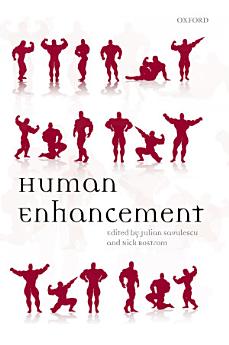Human Enhancement
ene 2009 · OUP Oxford
eBook
432
Páginas
family_home
Apto
info
reportLas valoraciones y las reseñas no se verifican. Más información
Información sobre este eBook
To what extent should we use technology to try to make better human beings? Because of the remarkable advances in biomedical science, we must now find an answer to this question. Human enhancement aims to increase human capacities above normal levels. Many forms of human enhancement are already in use. Many students and academics take cognition enhancing drugs to get a competitive edge. Some top athletes boost their performance with legal and illegal substances. Many an office worker begins each day with a dose of caffeine. This is only the beginning. As science and technology advance further, it will become increasingly possible to enhance basic human capacities to increase or modulate cognition, mood, personality, and physical performance, and to control the biological processes underlying normal aging. Some have suggested that such advances would take us beyond the bounds of human nature. These trends, and these dramatic prospects, raise profound ethical questions. They have generated intense public debate and have become a central topic of discussion within practical ethics. Should we side with bioconservatives, and forgo the use of any biomedical interventions aimed at enhancing human capacities? Should we side with transhumanists and embrace the new opportunities? Or should we perhaps plot some middle course? Human Enhancement presents the latest moves in this crucial debate: original contributions from many of the world's leading ethicists and moral thinkers, representing a wide range of perspectives, advocates and sceptics, enthusiasts and moderates. These are the arguments that will determine how humanity develops in the near future.
Acerca del autor
Julian Savulescu is Uehiro Chair in Practical Ethics, Director of the Oxford Uehiro Centre for Practical Ethics, and Director of the Program on Ethics and the New Biosciences in the 21st Century School, University of Oxford Nick Bostrom is Director of the Future of Humanity Institute at the University of Oxford. He previously taught at Yale University in the Department of Philosophy and in the Yale Institute for Social and Policy Studies.
Valorar este eBook
Danos tu opinión.
Información sobre cómo leer
Smartphones y tablets
Instala la aplicación Google Play Libros para Android y iPad/iPhone. Se sincroniza automáticamente con tu cuenta y te permite leer contenido online o sin conexión estés donde estés.
Ordenadores portátiles y de escritorio
Puedes usar el navegador web del ordenador para escuchar audiolibros que hayas comprado en Google Play.
eReaders y otros dispositivos
Para leer en dispositivos de tinta electrónica, como los lectores de libros electrónicos de Kobo, es necesario descargar un archivo y transferirlo al dispositivo. Sigue las instrucciones detalladas del Centro de Ayuda para transferir archivos a lectores de libros electrónicos compatibles.







